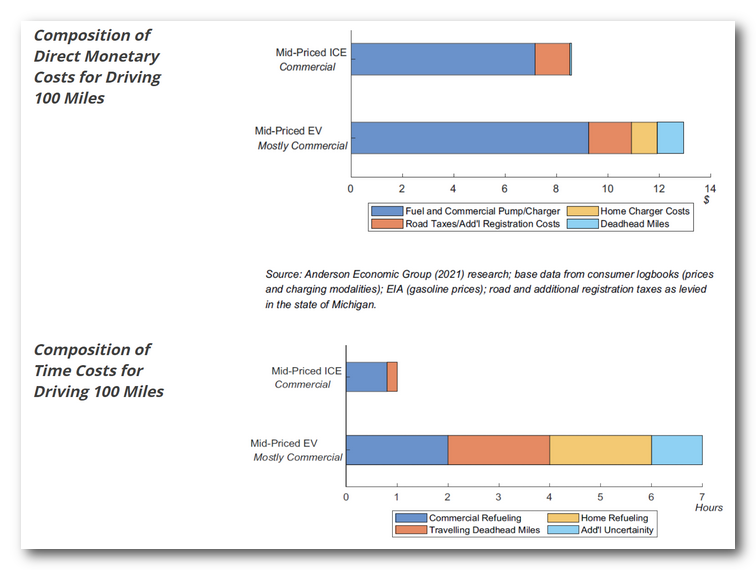Poll doesn't have a "giving it some thought" button.
We have 2 vehicles, both gas-powered. One is a car for around town, the other a small SUV for road trips and pulling a small camper. An EV would be very practical for the former, and that is what I think EVs are relegated to at this time. As for the long-hauler, the EV technology is not ready for prime time, IMO. We make frequent road trips to CA to visit family there. Usually takes 3 days each way, about 700 miles/day on average. We also do cross-country vacations. The only way I would consider an EV for that is if: 1) It has some power and a range of 600-700 miles, and 2) I can depend on getting an overnight charge at the Holiday Inn Express in Bumfark, Kansas. And pulling a camper--even our 1500lb popup? I'm not yet convinced.
My wife is retired and I'm semi-retired with a home-based solo law practice, so commuting isn't an issue. But I could see us in an EV for the various errands we do around the city. The runaround car (2013 Camry) is about due for trade-in the next year or two, once auto supply chain issues settle down. I would definitely consider an EV to replace that.





































![Craft A Brew - Safale S-04 Dry Yeast - Fermentis - English Ale Dry Yeast - For English and American Ales and Hard Apple Ciders - Ingredients for Home Brewing - Beer Making Supplies - [1 Pack]](https://m.media-amazon.com/images/I/41fVGNh6JfL._SL500_.jpg)




















